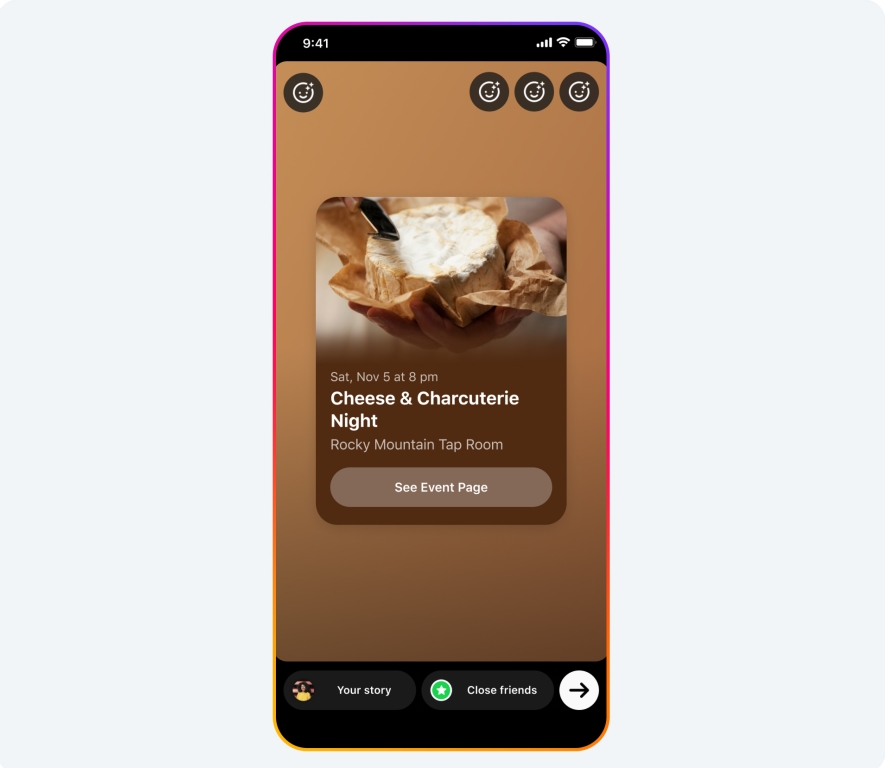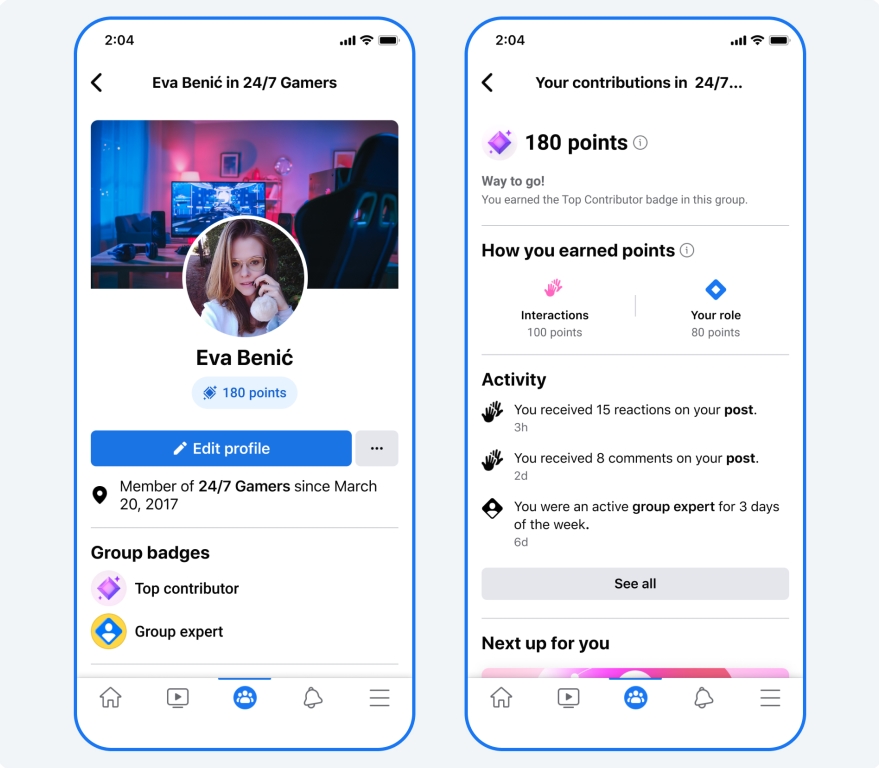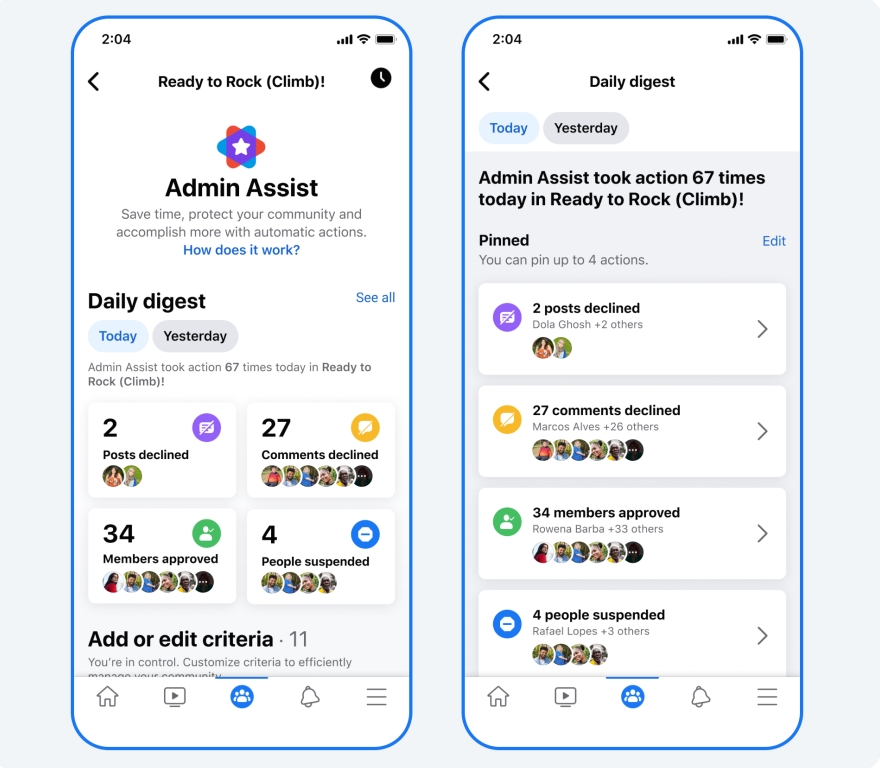Meta is introducing a slew of updates to Facebook Groups as part of the Facebook Communities Summit, including new ways to share content, new admin controls, and more.
Groups have been a core part of Facebook for years, bringing users together around a central theme. Meta says that most Facebook users are a part of at least 15 active groups, with over 100 million group joins each day. For brands, Groups have also provided a space to become recognized as an industry authority and to build relationships with potential customers.
The new updates announced for the Communities Summit are:
- Reels in Facebook Groups
- Share Facebook Group events in Instagram Stories
- Customize Facebook Group Profiles
- New ways to recognize Facebook Group community members
- Updates to the Admin Assist tool
- Ways for Group Admin to allow content normally flagged by Facebook
Reels In Facebook Groups
The social network has been making Reels more prominent over the past few months, so it was only a matter of time before the short videos made their way into Groups.
In the past, users could only post Reels to Groups using a workaround that included publicly posting the Reel and sharing that post to a Group.
Now, Group members can directly post their Reel to a Group without sacrificing the privacy of closed communities.
Share Group Events To Instagram Stories

Public events can now be promoted in Instagram Stories, making it easier to grow communities and attract non-group members to upcoming gatherings. As the announcement reads:
“Whether you’re a group admin hosting a meet-up to celebrate a community milestone, or a Group member sharing your passion with friends, this feature can help you showcase your community more broadly.”
Customize Facebook Group Profiles
To keep Group members up-to-date and build better connections, Meta is adding two new ways to customize your Group profiles.
Firstly, Groups can now customize the information in the About Me section of their profile to highlight important information for the community.
Additionally, admins and members can now add indicators to their profiles showing whether they’re open to messages from other group members.
Recognize Top Group Members

Facebook Groups are testing a new way to highlight members who are contributing the most to the community. As Meta describes, the new system allows users to earn points through reactions and comments on posts. Users with the most points can then be given badges celebrating their contribution to the group.
Users can also take on a new role within Facebook Groups as a “socializer” or group member who goes out of their way to make others feel welcome, connected, and motivated to participate in the community.
Updates To Admin Assist Tools
The existing tools for admin are being expanded with new moderation options and ways to take action on content posted to the group.
With the new tools, the admin can automatically move or remove posts rated as false by third-party fact-checkers. Along with this, group admin can use the Daily Digest to easily review the latest actions taken in the community.

Approve Content Flagged By Facebook
Facebook is working with group admins to give group leaders ways to approve non-offensive content which may otherwise be flagged and removed by Facebook’s automated systems.
In the announcement, Meta gives the example of a group for fish tank enthusiasts. Within these communities, it may be common to call a fish “fatty” in a way that is not intended to be offensive. Previously, Facebook’s tools would flag this content despite the clear context and intent.
The new feature is being granted to eligible groups based on a variety of criteria. For example, the announcement notes that a group may not be eligible if the admin were previously part of a removed group.
For more about these features and all the latest info about Facebook Groups, check out the full announcement here.




